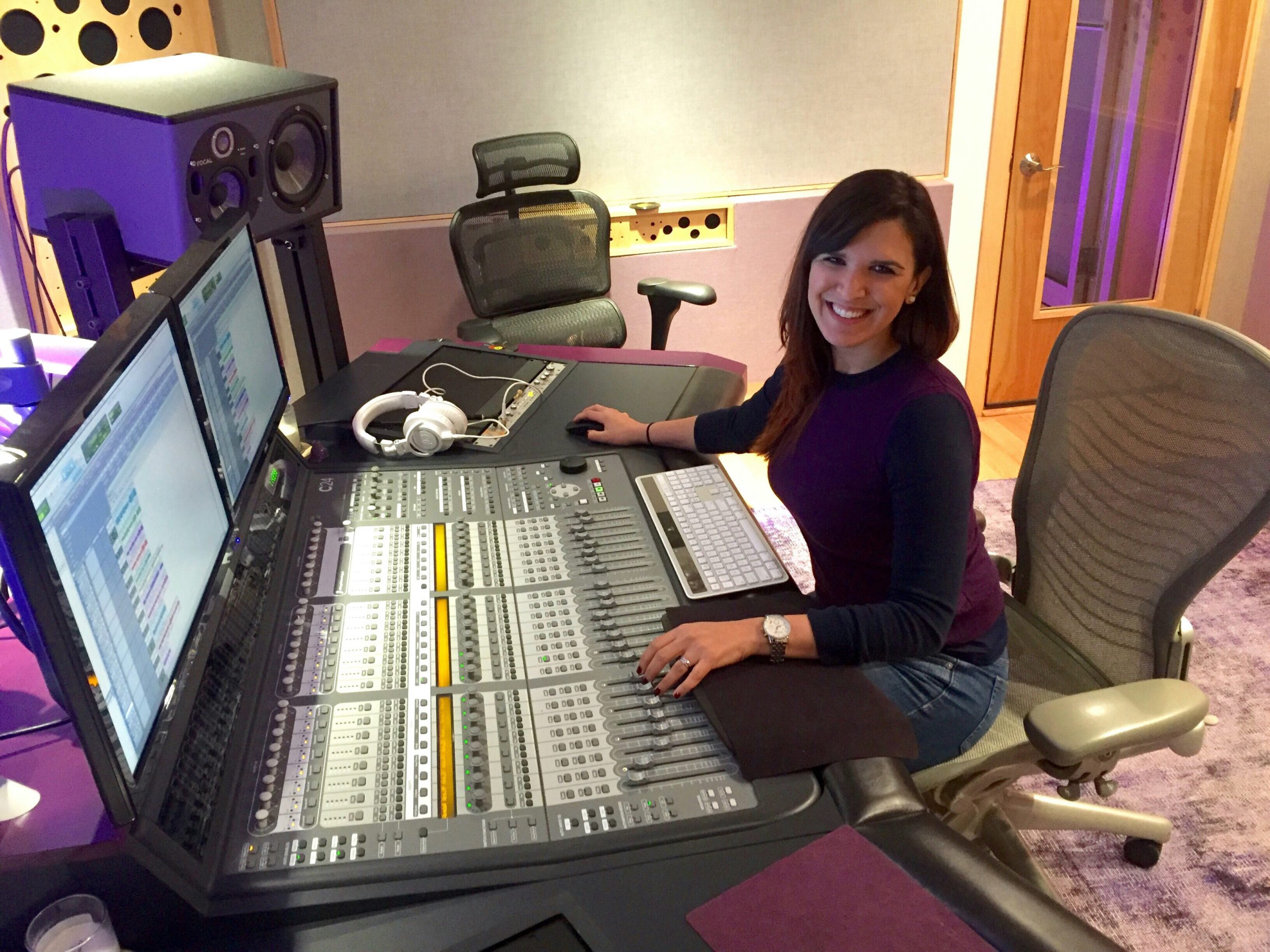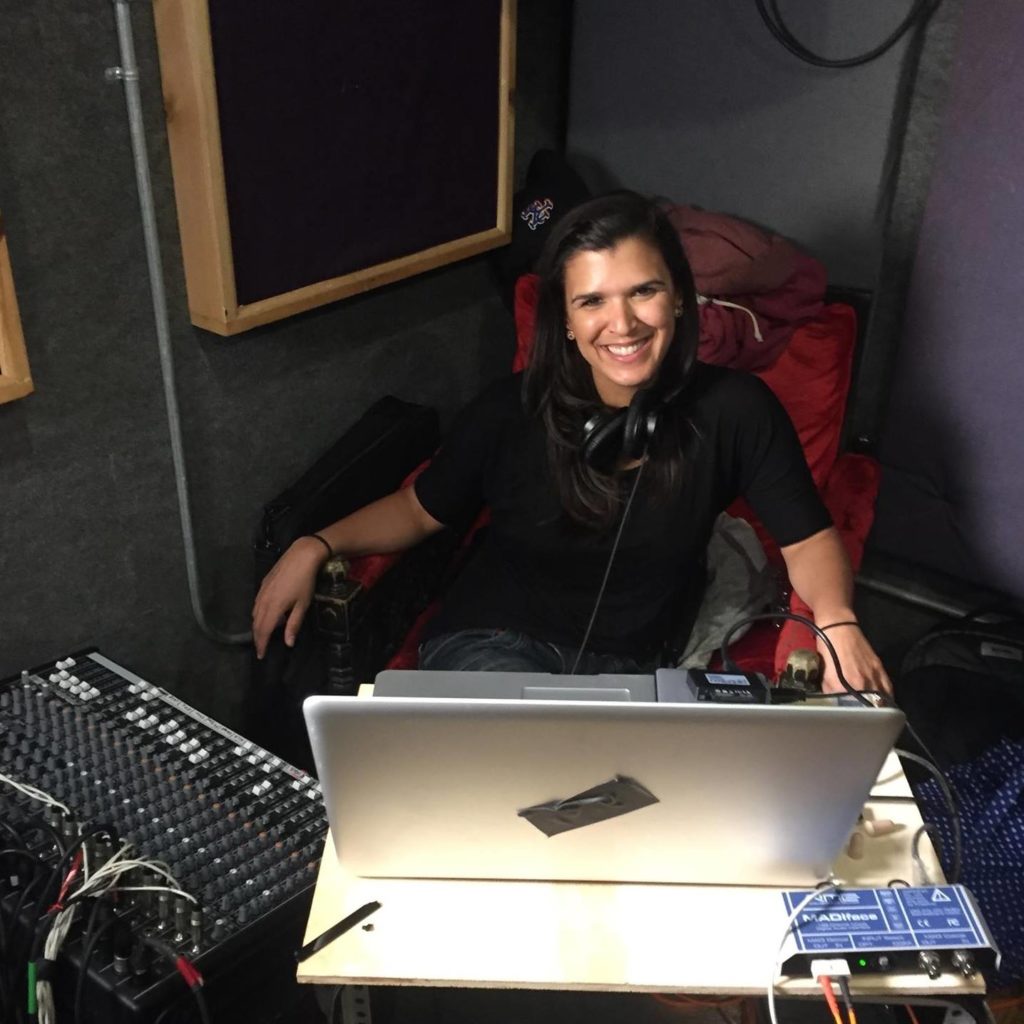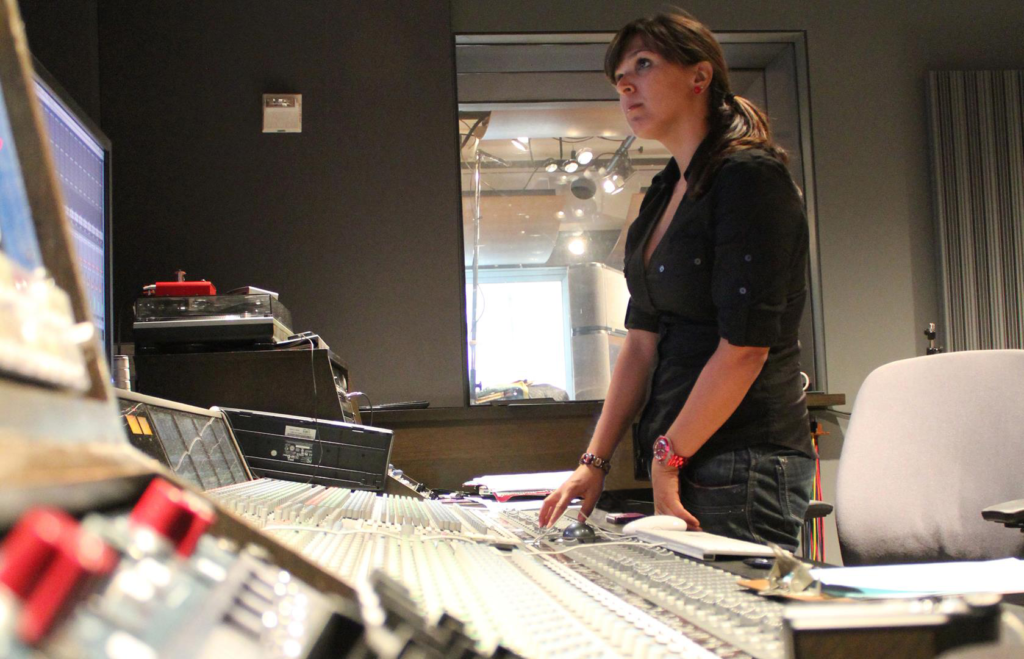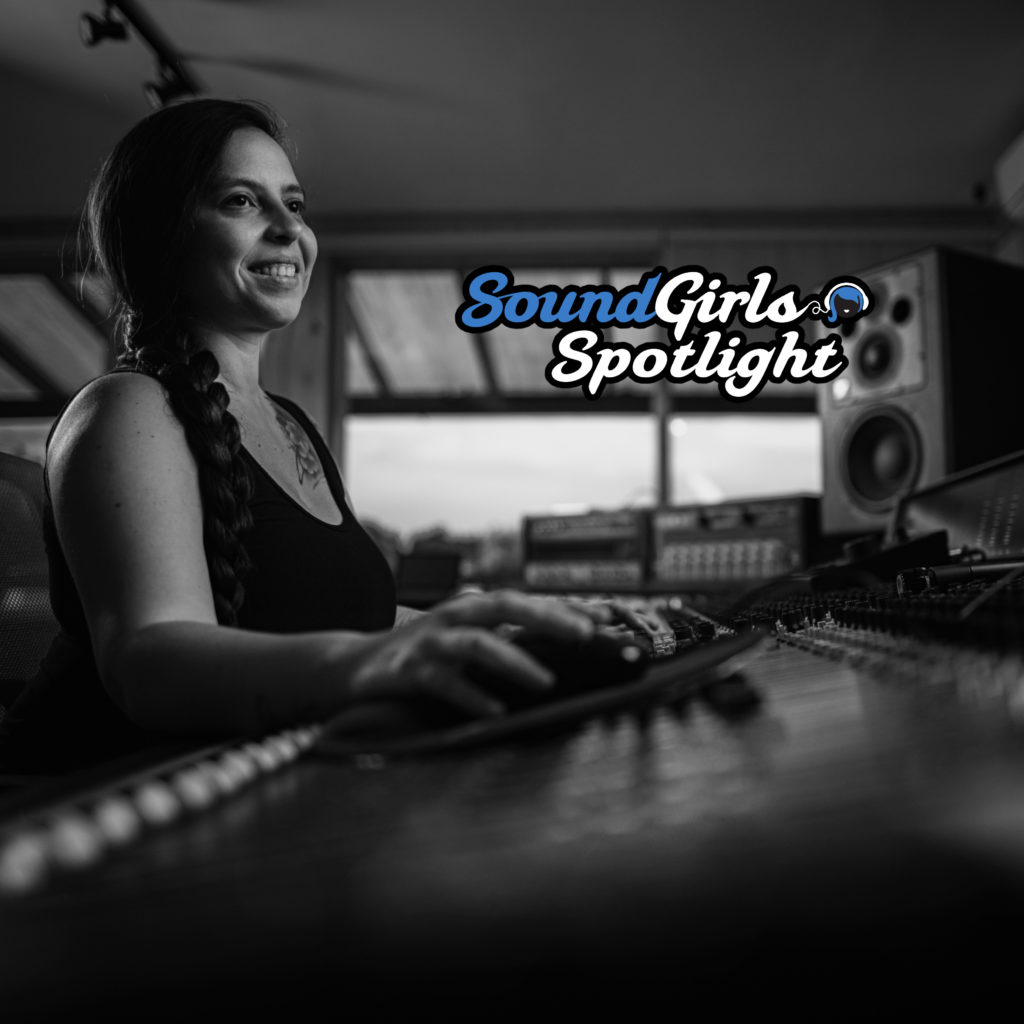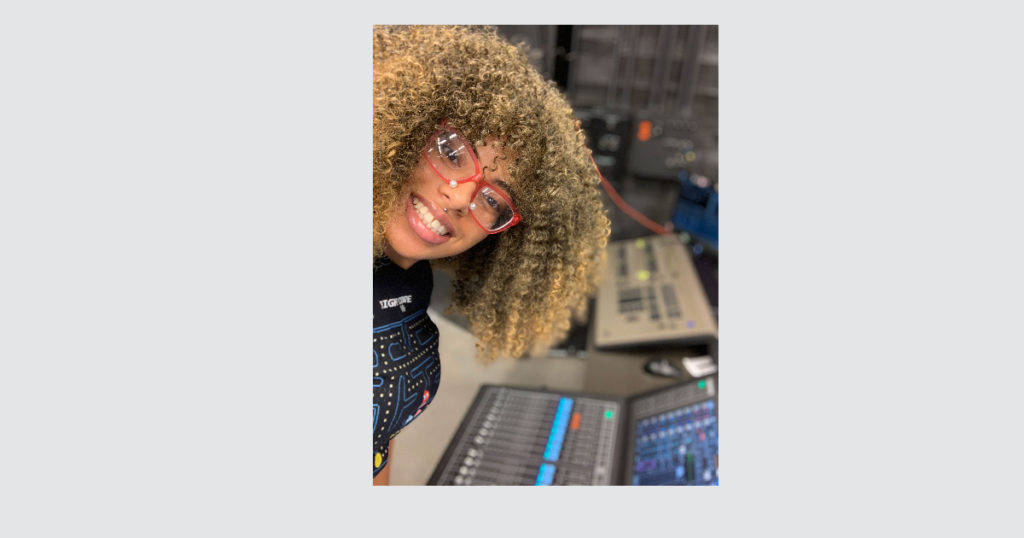Jeanne Montalvo is a Grammy-nominated audio engineer and radio producer. In 2017, she was nominated for a Grammy Award as Mastering Engineer for Vladimir Horowitz: The Unreleased Live Recordings, and her recording of Multiverse by Bobby Sanabria’s Latin Jazz Big Band was nominated for Best Latin Jazz Album at the 2012 Grammy Awards. In 2018 Spotify awarded her a residency at Spotify Studios and Electric Lady Studios in NY, where she assisted on recordings for John Legend, Cultura Profética, Alessia Cara, Anitta, and many more. She has worked at the Banff Centre for the Arts, and the Tanglewood Music Festival, and has also worked on live recordings with Spike Lee and Al Kooper.
She broke into radio after receiving her Masters in Music Technology from New York University, working as an audio engineer and producer for National Public Radio, Bloomberg Radio, the Duolingo podcast, and projects for the New York Times and Sony. She is also a creator of “Live from Latino USA” a live and (mostly) unplugged video series that features Latinx talent from Jessie Reyez to Jose Feliciano. She is currently freelancing in the city and the treasurer of the New York Section of the Audio Engineering Society.
Jeanne attended The University of Central Florida, where she minored in music and mass communications and was looking into a Master’s in Music Business when she saw a brochure with music business on one side and music engineering on the other. Jeanne says “a light bulb went off. Now I look back and it was obvious. I used to edit for fun on cassette tapes as a kid, stay home to record the radio, play with microphones, and then in college got a copy of Cool Edit Pro and started doing digital editing for dance groups and school projects. But it wasn’t a job I saw really, so how would I have known?” Jeanne would go on to attend Microfusa for audio and enrolled at NYU for a Master’s in Music Tech.
What did you learn interning or on your early gigs?
I learned work ethic early on. When I didn’t understand things, I asked, but if I had a bigger learning curve, I stayed late or came in early to do extra time to try to figure things out. If it was allowed I’d come on weekends. After a while, I caught up to the workflow, but it was on me to make sure I could stay on point. At the beginning of my career especially because I was working in older technology, analog tape, and sometimes tapes from the 1930s I was always really nervous about breaking things. It’s one thing to make mistakes at school, but real life has real-life consequences. So I was always focused, I paid extra special attention to detail, and if something didn’t sit right with me, I went to someone to ask for help. And eventually, that became less and less.
Career Now:
What is a typical day like?
Depends on the day, but I am still very much working from home. If I’m sound designing or producing podcasts, I may be getting music from a sound library and efx and going through scripts. I tend to work best hearing things, so while I do use scripts, I will score and put sound efx in on the fly as I hear things. If it’s music, lately I’ve been more on the post side. So it usually involves receiving tracks, organizing my session, and mix prepping. Then mixing of course!
How do you stay organized and focused?
I have a lot of Excel spreadsheets, and to-do lists, and I use Trello. Because I tend to do a lot of different things, I start to get scattered if I’m not organized. And for me, that means seeing things written out.
What do you enjoy the most about your job?
I love seeing people do what they do best. I never aspired to be a performer, but I love helping talented musicians produce the best version of themselves. It’s important they don’t have to worry about the tech, so they can just focus on their craft. And I get to be the one that captures that moment. And with podcasts, I love hearing a story come to life with music and efx. It’s the best moment when a piece is scored and you listen back and all of a sudden you can see everything in your mind.
What do you like least?
I hate that I can’t turn that off. Sometimes I go to bed still thinking about things or reading about something. If I could work all the time, I would because I enjoy it. But that’s not necessarily good for you as a human being.
What is your favorite day off activity?
I love to spend time with my family. I have 2 young kids, so anytime I can, I am with them and my spouse.
What are your long-term goals?
I would love to be able to do more music, so I try to take as much of that as I can. My husband is a singer/songwriter and we also would love to build out our own studio to be able to produce and do more work.
What if any obstacles or barriers have you faced?
I think the main thing I dealt with in the beginning was being taken seriously – having to prove to someone I knew what I was doing.
How have you dealt with them?
I just did the work. I didn’t let it get to me, and I worked hard. And eventually, those people grew to respect me because they realized that I could in fact do what I was hired to do. The work speaks for itself. If you get too much in your head about things, it’s easy to think that people are against you. But if you do good work, then actions speak louder than words.
Advice you have for other women and young women who wish to enter the field?
Keep at it. Don’t give up. There will be time to do everything you want to do, so don’t feel like you’re not where you’re supposed to be. Take the job that’s on the table. It may not be the one you want, but it’s the job that may take you to the one you want. You will inevitably learn something there and those are the building blocks to being the badass engineer you are. The dots will connect.
Must have skills?
Attention to detail.
Desire to learn. You never stop learning.
Quick thinker/ability to react and troubleshoot quickly
Favorite gear?
I think Izotope RX is the best and I’ve been using them for years.
I also have been using my Sony MDR-7506 for over 15 years!
More on Jeanne
Jeanne Montalvo on The SoundGirls Podcast
Jeanne Montalvo-Grammy nominated audio engineer and radio producer talks about music, mother & more!
